The place is a rural Galician village. The terrain is gorgeous and mountainous, but many of the homes are falling apart. The residents, most of whom have been there for generations, are tough, poor, and depressed. Many of them have moved away.
Recently, there was a vote whether or not to sell a portion of land to the developers of wind turbines. Some of the locals were enthusiastic about receiving monetary compensation. The embittered Xan (Luis Zahera) and his soft-spoken brother Lorenzo (Diego Anido) are especially angry that the deal did not come to fruition. In one of the first scenes, Xan angrily lectures a group of his peers in a dingy bar as they play dominoes. His manner is aggressive and provocative, as though he is actively trying to coax violence to the surface. The target of his provocations is Antoine (Denis Ménochet), a recent transplant from France. Antoine, citing the greed of large developers, has voted no.
Antoine and his wife, Olga (Marina Foïs), have come to Galicia to fulfill his lifelong dream (not hers) of starting their own organic farm and living off the land. In addition to their own home, he has started repairing a neighboring crumbling stone house. He and Olga hope their activities will bring more people back to this declining village. Their closest neighbors, however, are Xan and Lorenzo, and Xan’s barbed comments in the bar are only his first act of aggression. Soon, Antoine finds piss on his lawn chairs, is subject to torment from Lorenzo when his car breaks down, and discovers his tomatoes have somehow become rotten. He retaliates by trying to film them—with a hidden camera—in the act of harassing him, but his videos end up being useless to the police. Olga watches, mostly passively, occasionally warning him that this is not going to end well.
There is much to admire in Robert Sorogoyen’s new film, which won nine Goya Awards this year in Spain. First of all, it is beautifully acted. Zahera, especially, succeeds in summoning an anger and brutality that almost transcends reason, as does Ménochet, who brings an admirable combination of reason and obtuseness to his complex character. A scene in which Antoine, Xan, and Lorenzo get into a physical fight is reminiscent of Rashomon in the way its choreography illustrates both aggression and fear. A third act brings Olga and her daughter, Marie (Marie Colomb), on screen in arresting, surprising ways.
The setting is captured with expert cinematography, and often with a reliance on natural light, which lets the looming hills and rocky landscapes speak for themselves. There is as much attention paid to decaying buildings as to the beauty of nature, richly bringing into focus the contradiction of Antoine’s attempt to make a home there. Most admirably, the filmmakers do not reduce this story to good and bad (the enlightened urbanite vs. the ignorant, brutal townsfolk), but seek to portray a complex situation in which all involved parties have their motives.
In short, the brothers are poor as hell. They saw the wind turbine money as a real possibility for advancement in their lives, and then this wealthy urbanite comes in and gets in their way. Antoine reveals, unintentionally, that his desire to make a home in this town is romantic, misguided, and was made in ignorance of the well-being of those who already lived there. He is also deeply learned and has well-informed reasons to distrust the developers whose money the brothers are so eager for.
Given that everyone has their motives, the situation theoretically is not one of heroes and villains, and supposedly takes on the complexity of gentrification in the modern world, as the filmmakers have stated was their intent. Yet the filmmakers, whether they meant to or not, have made Xan and Lorenzo into villains, and have us rooting for their demise. Their methods seem pulled from a home-invasion horror movie, and there are times when, as they are lurking at the edges of Antoine’s life, they resemble the gangsters led by Ed Harris in A History of Violence, or the evil kid in The Killing of the Sacred Deer. They do something nasty, deny they did it, and then get more in Antoine’s face. This pattern is repeated to the point of monotony and, sometimes, pointlessness. Lorenzo is referred to as “slow” for having suffered an accident, and one often wonders if he is in full control of his actions. Yet the film still frames the brothers as movie villains in a way that feels more one-sided than it should. Lorenzo, in spite of this hint of a backstory, is often treated purely as a figure of menace.
There is also a suggestion that, while men fight, women talk things out, as exemplified by the third act in which Olga takes center stage. Though there are strong scenes in this section, such as when Olga stands her ground when the brothers try to intimidate her daughter, that notion is reductive.
One could argue that the film is not hampered by having two traditional villains. Perhaps it is best seen as a thriller, or a modern-day Western, in which these brothers emerge as a manifestation of realities the more privileged protagonists try to ignore. Still, the movie foregrounds its moral issues of gentrification, poverty, and ownership that cannot be ignored. The Beasts, loosely inspired by a real incident, would have been more engrossing had its filmmakers fully embraced the moral complexity they gestured toward. Perhaps the brothers would have been more compelling as villains.

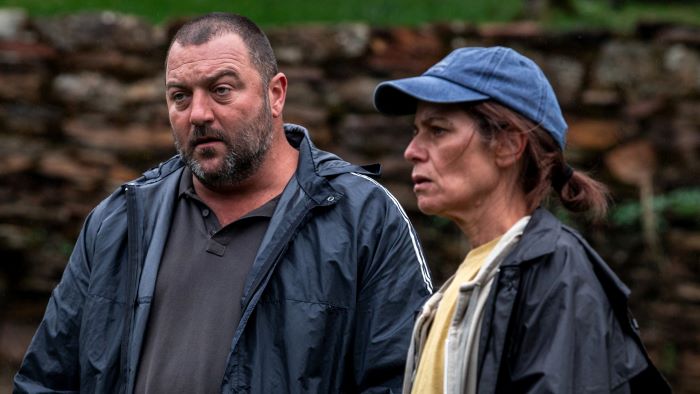
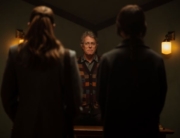

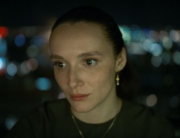
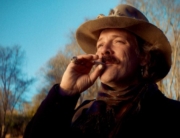
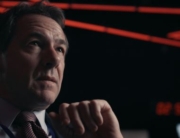
Leave A Comment